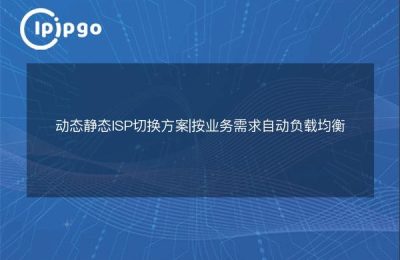
When it comes to the difference between residential dynamic IP and static IP, we have to briefly explain what IP is.IP, full name is Internet Protocol (Internet Protocol), is a set of numbers used to identify computers and devices in the Internet. Similar to our human identity card number, each device has a unique IP address to facilitate data transmission and communication in the Internet.
Now, let's take a look at what the residential dynamic IP and static IP are.
A residential dynamic IP is an active little ipipgo
A residential dynamic IP address is like an active little ipipgo, always changing its form in the Internet, and is an IP address that is automatically assigned by an Internet Service Provider (ISP). Every time we reconnect to the Internet or after a regular period of time, the residential dynamic IP address will change.
Now you may ask, why do you have to make so much trouble and have to get a dynamic IP? In fact, this is a way to prevent the waste of network resources. Imagine, if each of us fixed an IP address, then even if we do not use the network will take up IP resources. Therefore, the existence of residential dynamic IP, can be more efficient use of IP resources, to bring more available IP addresses to the Internet.
Second, static IP seems to be a man, from the unchanged
As opposed to the instability of residential dynamic IPs, static IPs are like a stable lord, and the IP address assigned to you generally doesn't change. That is, your device will use the same IP address every time you go online.
So what are the benefits of a static IP? First of all, static IPs are very useful for services or applications that need to run for a long time, such as building websites and remote access. The existence of a static IP makes it easy for others to find the services you provide through your IP address. In addition, static IPs are also more suitable for users who need to perform network management, making it easy to restrict access to specific IPs or perform security control.
III. Scope of use of dynamic and static IPs
Residential dynamic IPs are mostly used for general home and personal users, and are suitable for general internet access, socializing, entertainment and other daily needs due to their unstable nature. There are various ways for ISPs to assign residential dynamic IPs to users, such as Dynamic Host Configuration Protocol (DHCP).
Static IP is mainly suitable for users who need to provide services to the outside world in a long-term and stable manner, such as servers, enterprises, organizations and so on. Users need to apply for a fixed static IP from the ISP and set it accordingly to use static IP normally.
IV. Code examples
Using Python as an example, with an understanding of residential dynamic and static IPs, we can see how to use them in programming. Here is a simple example code:
# Sample Code for Using Residential Dynamic IPs
import requests
# initiates a GET request
response = requests.get('http://api.example.com', proxies={'http': 'http://dynamic-ip:port', 'https': 'http://dynamic-ip:port'})
# Print the response
print(response.text)
# Sample code using static IPs
import requests
# initiates a GET request
response = requests.get('http://api.example.com', proxies={'http': 'http://static-ip:port', 'https': 'http://static-ip:port'})
# Print the response
print(response.text)With the above example, we can see that when using residential dynamic IP and static IP, you only need to set the appropriate proxy according to the actual situation.
So, guys, between residential dynamic IP and static IP really can not be both the fish and the bear's paw, each has its own advantages applicable to different scenarios. Hopefully, this article can provide you with some reference to choose the right type of IP for your network setup at the right time.








